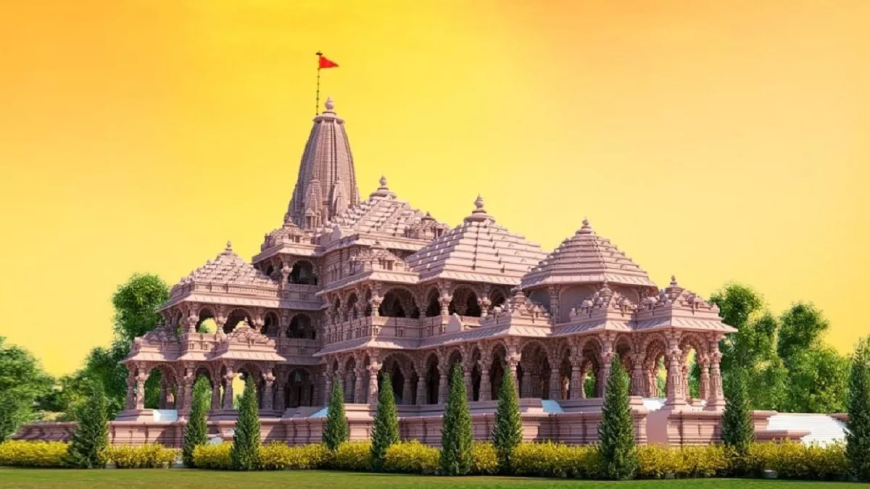Ram Mandir: Cultural Landmark or a Political Stratagem?

The construction of the Ram Mandir in Ayodhya has been a disputatious issue with deep literal roots. The site, originally housing the Babri Masjid, has been a focal point for religious pressures and political maneuvering for over a century. Understanding the evolution of events surrounding the Ram Mandir allows for a disquisition of whether it's primarily a cultural milestone or a political tool. Historically, the conflict dates back to the construction of the Babri Masjid, which Jesuit Missionary Joseph Tiefenthaler claimed was built by destroying the Ramkot temple. The first documented religious violence in 1853, sparked by the placement of Hindu idols inside the mosque, initiated legal battles and a subsequent British administration prohibition on Hindu worship at the site in 1858. Hindu activists' 1949 placement of the idol of Rama further intensified the dispute. The unlocking of the mosque in 1986 by the Rajiv Gandhi government was seen as a political move to balance the Shah Bano judgment. The political landscape further shifted in 1992 when a massive rally led by BJP and VHP volunteers, organized by Lal Krishna Advani, influenced the demolition of the Babri Masjid. Atal Bihari Vajpayee's speech on December 5, 1992, marked a turning point in Indian politics, propelling the BJP to elevation. The effect of the Babri Masjid demolition witnessed accusations against then-PM P.V. Narasimha Rao of Hindu 2. Atal Bihari Vajpayee leveraged the situation, leading to significant gains for the BJP in posterior elections. The Ram Mandir issue became a potent political tool, aiding the BJP's rise to power. In 2010, the Allahabad High Court's decision to divide the disputed land among Ram Lalla, the Sunni Waqf Board, and the Nirmohi Akhara attempted a legal resolution.
However, the Supreme Court's verdict in 2019, favouring Hindus and directing the construction of the Ram Mandir on the entire disputed land, further fueled the debate on the intertwining of politics and religion. Jagatguru Swami Rambhadracharya Maharaj's testimony was pivotal in the court's decision, citing Hindu Holy Scripture to establish the land's significance. The Supreme Court's directive for the Sunni Waqf Board to be given 5 acres for a mosque added another subcaste to the complex narrative. The official commencement of temple construction in 2020 and the announcement of the idol installation on January 22, 2024, have reignited discussions on the political nature of the Ram Mandir. Criticisms from figures like Mahant Sitaram Das and Pandit Ashok Sharma within the Nirmohi Akhara and the broader political spectrum question the BJP's role in politicizing the temple's construction. The opposition, including Congress President Mallikarjun Kharge and MP Shashi Tharoor, has condemned what they perceive as a BJP-driven political conspiracy. These critiques emphasize concerns over the government's involvement and accuse the ruling party of diverting attention from critical governance issues. The contradiction between the temple's cultural significance and political exploitation becomes apparent when examining the various perspectives. Supporters argue that the Ram Mandir is a symbol of cultural restoration and public identity, fulfilling a long-lying Hindu sentiment. However, critics scrutinize it as a tool wielded by the BJP for political gains, diverting attention from pressing governance matters.
In conclusion, the Ram Mandir in Ayodhya is incontrovertibly a cultural landmark with profound religious significance. However, its journey from a disputed site to the focal point of political battles raises legitimate questions about its political manipulation. The integrated nature of religion and politics in the narrative of the Ram Mandir suggests that it isn't solely one or the other but rather a complex amalgamation of cultural symbolism and political strategy, reflecting the intricate dynamics of Indian society.
While I may not be directly affected by the Ram Mandir issue, it has been interesting to witness the cultural and political discussions surrounding it. In the context of India's history and culture, I consider it to be important. I recognize the historical and cultural significance of the Ram Mandir issue. I'm aware of the historical and cultural importance of Ram Mandir. This topic appeals to me and many Indians because of its connection with the country's heritage. I understood how religion can be leveraged for political gains. Adding to it is how lack of government accountability can affect state affairs.













































